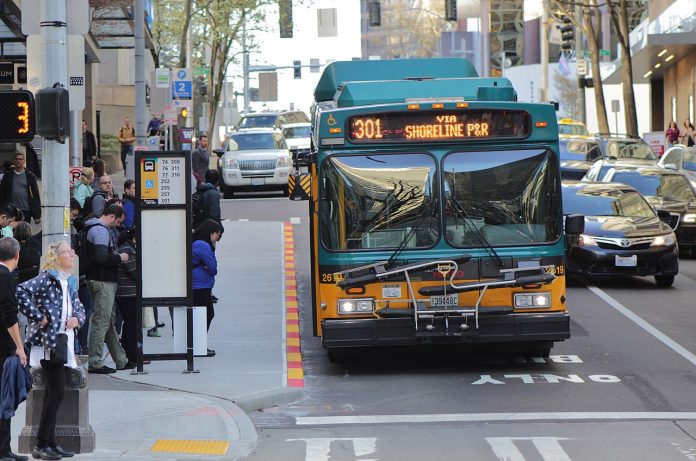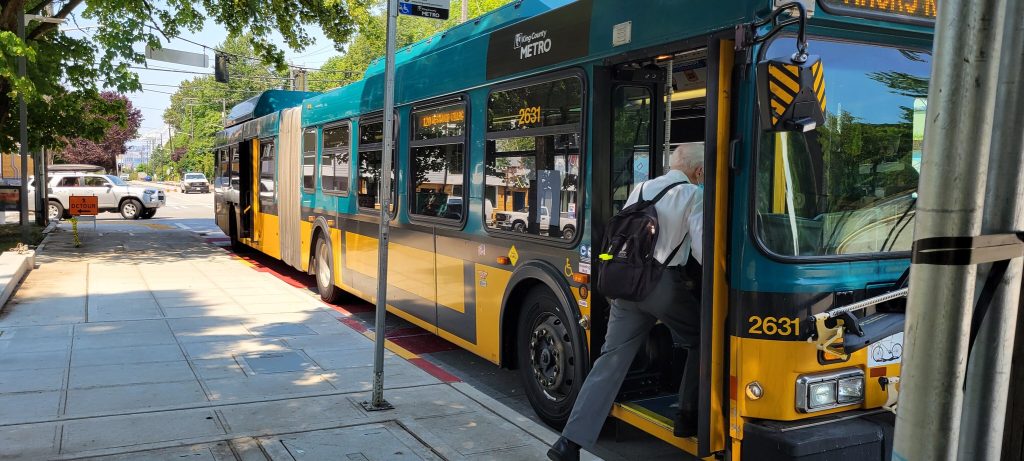
King County Metro has announced fresh service suspensions with six weekday peak-hour bus routes, affecting Routes 16, 232, 237, 301, 304, and 320. The suspensions are said to be temporary, applying from June 12 to June 23, but all six routes are set to be suspended for an undetermined time period in the September service change. The agency continues to struggle with delivering scheduled bus service as workforce shortages and supply chain issues plague operations.
Metro has cited major employers calling workers back to the office as a reason to hold on service reductions planned in September. However, the struggle to deliver scheduled service this summer has invited questions of whether the wait makes sense. Metro is routinely cancelling north of 4% of weekday trips.
At first blush, a 96% service delivery may sound modest, but to commuters counting on the service, it’s a big deal. Seeing their more direct trips home vanish last-minute or a half-hourly bus suddenly becomes hourly can turn riders off to transit and cause upheaval in people’s lives due to missed appointments and plans.
Missed trips routinely exceeding 0.5% is indicative of a transit network in need of service adjustments. Riders should be able to expect higher reliability, which was part of the agency’s justification for plans to cut scheduled bus service by 4% in September. Nonetheless, riders will grapple with a high level of unreliability until that larger fall adjustment.

Dozens of routes are set to be affected with the September service change, which include 20 route suspensions in all. Many peak-hour routes regularly getting cancelled now will simply evaporate through indefinite suspensions. Metro is also trimming service on some high-performing all-day Seattle routes, such as Routes 7, 10, 20, and 36, even as the City pays the agency a premium for extra bus service via the Seattle Transportation Benefit District. Service reductions spread more evenly across the all-day network countywide would be a better approach, but Metro has so far refused to reconsider its service reduction strategy which isn’t even in compliance with its own service guidelines.
In an interview with The Urbanist, Metro’s General Manager Michelle Allison said she was optimistic about the future and that workforce recruitment was headed in the right direction. The agency has laid out a new labor strategy to hire, train, and retain operations staff. “This is a marathon; this is not a sprint,” Allison said. “None of this is going to be solved overnight.”
Nevertheless, management has yet to agree to new union contracts, which could clear the way for hiring and retention bonuses, leaving Metro operators well behind in compensation compared to other transit operators in the region. LA Metro took a different path by leading with compensation. That agency was able to hire 1,000 operators and fully restore service as a result, and that’s an agency facing many similar challenges to King County, including high housing costs and operators turning into frontline workers in the homelessness crisis and opiate epidemic.
For now, King County Metro riders face a very unreliable system that continues to shrink. Whether or not these latest temporarily suspensions will simply move to indefinite suspensions remains to be seen, but the agency is warning riders that “further route and trip changes begin June 12 as Metro shifts buses to even out service across its seven bases.” Riders be forewarned.
Stephen is a professional urban planner in Puget Sound with a passion for sustainable, livable, and diverse cities. He is especially interested in how policies, regulations, and programs can promote positive outcomes for communities. With stints in great cities like Bellingham and Cork, Stephen currently lives in Seattle. He primarily covers land use and transportation issues and has been with The Urbanist since 2014.

